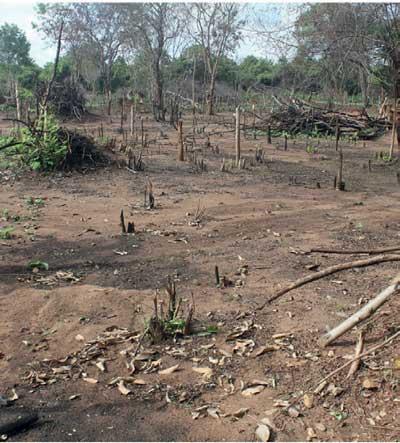21 Aug 2021 - {{hitsCtrl.values.hits}}
HSBC has committed Rs.48.2 million for Project CORE (Climate-smart Opportunities through Restoration and Education): a first of its kind, science-backed restoration initiative combining nature-based knowledge, ecosystem best practices, youth involvement and innovation to enhance ecosystem sustainability.

The project aims to restore 125 hectares of degraded land in the Thanthirimale area over a period of four years, addressing multiple societal challenges by enhancing disaster resilience, addressing income challenges, improving ecosystem services and biodiversity in line with the Nature Based Solutions (NbS) approach.
Engaging the community through developing an understanding of the value of conservation and restoration is also a critical outcome of Project CORE.
Considered one of the 36 biodiversity hotspots in the world, Sri Lanka is highly vulnerable to climate induced disaster impacts. The country’s unique biodiversity is currently threatened by climate change, habitat fragmentation and over-exploitation. Severe shifts in Sri Lanka’s seasonal rainfall patterns accompanied by increased flood and drought events in the last decade have directly impacted rural food security and income. According to HSBC Global Research, climate change will be the defining crisis of the century for Asia. Ignoring the human impact on climate will delay reducing inequality and achieving sustainable long-term growth in the region.
Project CORE is part of a US$ 100 million global initiative by HSBC to accelerate efforts to build a Net Zero Economy. HSBC unveiled this Climate Partnership with World Resources Institute (WRI) and WWF in May 2021. This is part of HSBC’s ambitious climate strategy, announced in October 2020.
Project CORE is built around a multi-sector and multi-stakeholder approach, which in time can be replicated in other areas.
For instance, the project team will collaborate with the Forest Department to adopt a number of landscape approaches and techniques. Another important feature of the project is the schools-led effort to restore 25 hectares of the identified area.
This hands-on experience will play a pivotal role in improving the students’ knowledge on ecosystem services and potential restoration benefits towards water resources, biodiversity, climate adaptation, family nutrition and disaster risk reduction.
18 Nov 2024 1 hours ago
18 Nov 2024 2 hours ago
18 Nov 2024 2 hours ago
18 Nov 2024 2 hours ago
18 Nov 2024 2 hours ago